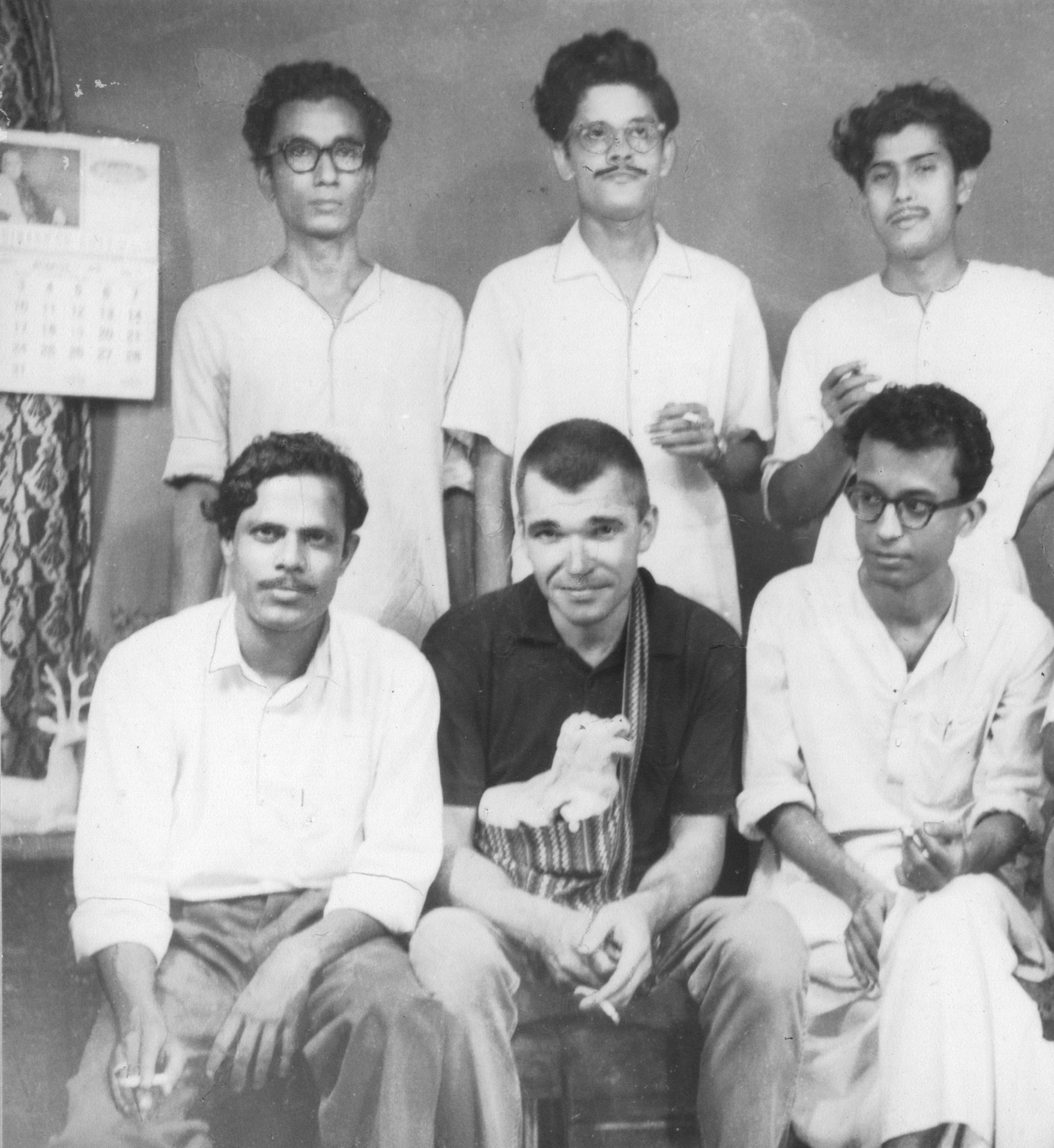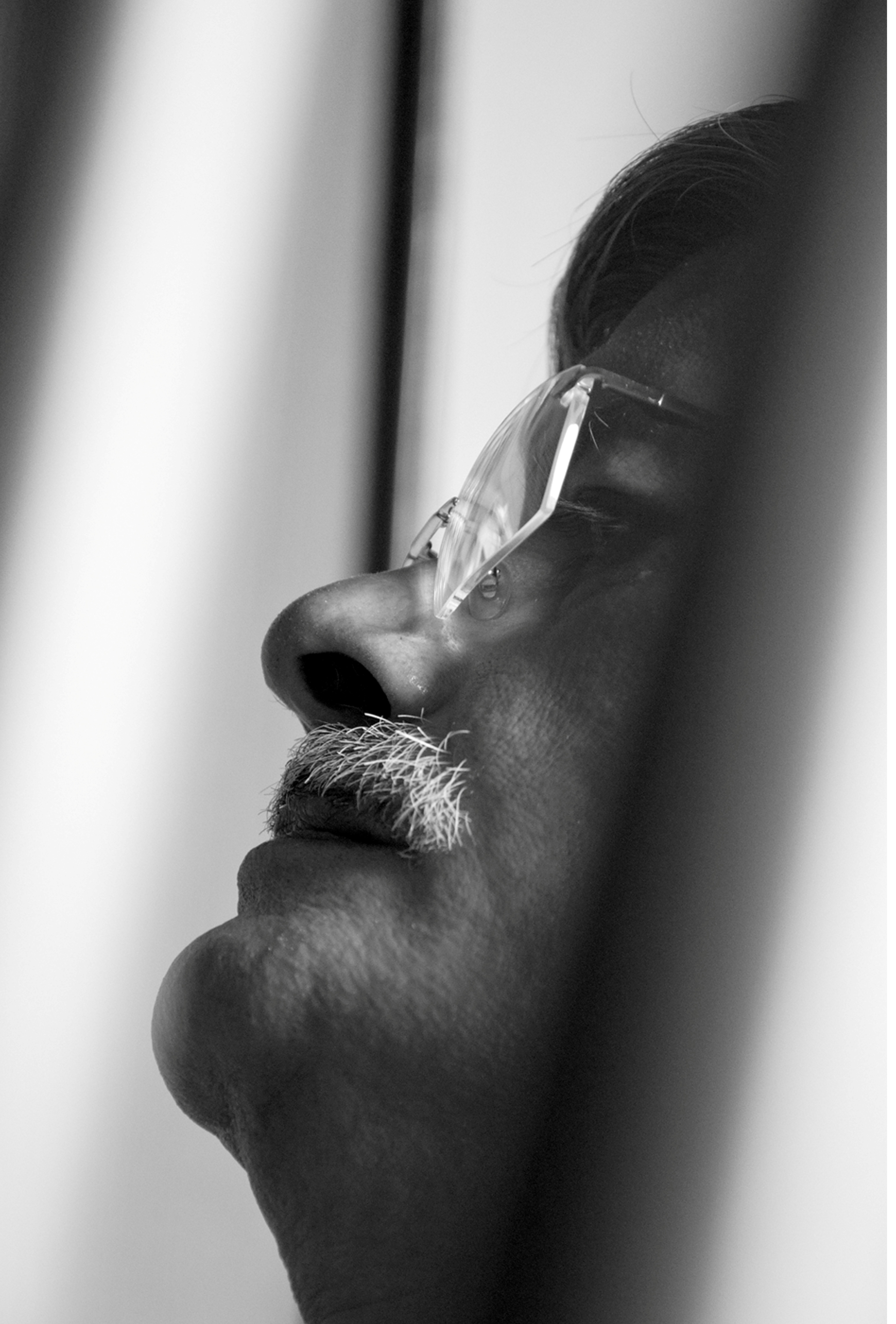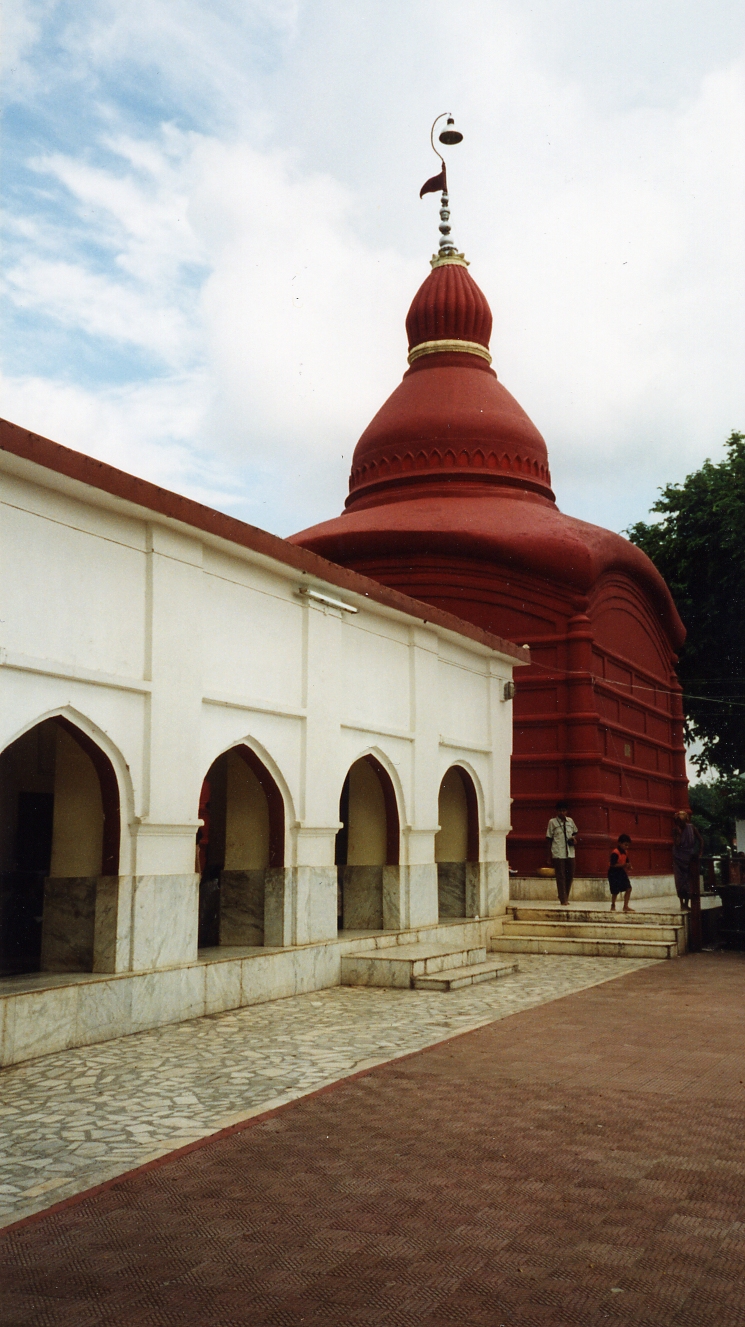|
Hungryalists
The Hungry Generation ( bn, а¶єа¶Ња¶Ва¶∞а¶њ а¶ЬаІЗථඌа¶∞аІЗපඌථ) was a literary movement in the Bengali language launched by what is known today as the Hungryalist quartet, ''i.e.'' Shakti Chattopadhyay, Malay Roy Choudhury, Samir Roychoudhury and Debi Roy (''alias'' Haradhon Dhara), during the 1960s in Kolkata, India. Due to their involvement in this avant garde cultural movement, the leaders lost their jobs and were jailed by the incumbent government. They challenged contemporary ideas about literature and contributed significantly to the evolution of the language and idiom used by contemporaneous artists to express their feelings in literature and painting.Dr Uttam Das, Reader, Calcutta University, in his dissertation 'Hungry Shruti and Shastravirodhi Andolan' The approach of the Hungryalists was to confront and disturb the prospective readers' preconceived colonial canons. According to Pradip Choudhuri, a leading philosopher and poet of the generation, whose works h ... [...More Info...] [...Related Items...] OR: [Wikipedia] [Google] [Baidu] |
Samir Roychoudhury
Samir Roychowdhury (Bengali: а¶Єа¶ЃаІАа¶∞ а¶∞а¶Ња¶ѓа¶Ља¶ЪаІМа¶ІаІБа¶∞аІА) (1 November 1933 вАУ 22 June 2016), one of the founding fathers of the Hungry Generation (also known as Hungryalism or Hungrealism (1961вАУ1965)), was born at Panihati, West Bengal, in a family of artists, sculptors, photographers, and musicians. His grandfather Lakshminarayan, doyen of the Sabarna Roy Choudhury clan of Uttarpara, had learned drawing and bromide-paper photography from John Lockwood Kipling, father of Rudyard Kipling, who was Curator at the Lahore Museum (now in Pakistan), and thereafter established the first mobile photography-cum-painting company in India in the mid-1880s. The company was later taken over by Samir's father Ranjit (1909вАУ1991). Samir's mother Amita (1916вАУ1982) was from a progressive family of 19th-century Bengal renaissance. Seeds of Hungryalism Samir's grandfather, Sri Lakshminarayan Roy Chowdhury established a permanent photography-cum-painting shop at Patna, Biha ... [...More Info...] [...Related Items...] OR: [Wikipedia] [Google] [Baidu] |
Malay Roy Choudhury
Malay Roy Choudhury (born 29 October 1939) is an Indian Bengali poet, playwright, short story writer, essayist and novelist who founded the Hungryalist movement in the 1960s. Early life and education Malay Roy Choudhury was born in Patna, Bihar, India, into the Sabarna Roy Choudhury clan, which owned the villages that became Kolkata. He grew up in Patna's Imlitala ghetto, which was mainly inhabited by Dalit Hindus and Shia Muslims. His was the only Bengali family. His father, Ranjit (1909вАУ1991) was a photographer in Patna; his mother, Amita (1916вАУ1982), was from a progressive family of the 19th-century Bengali Renaissance. His grandfather, Laksmikanta Roy Choudhury, was a photographer in Kolkata who had been trained by Rudyard Kipling's father, the curator of the Lahore Museum. At the age of three, Roy Choudhury was admitted to a local Catholic school, and later, he was sent to the Rammohan Roy Seminary Oriental Seminary. The school was administered by the Brahmo Sama ... [...More Info...] [...Related Items...] OR: [Wikipedia] [Google] [Baidu] |
Debi Roy
Debi Roy (born 4 August 1940) is one of the founding fathers of the Hungry generation movement in Bengali literature. He is also the first modern Dalit poet in Bengali. He was born in a very poor family and worked as an errand boy in tea stalls of Calcutta when his parents lived in a slum in Howrah. He funded his own education and became a graduate of Calcutta University. He started writing in his childhood. Debi Roy met Malay Roy Choudhury in an office of a literary periodical in 1960 and the two of them, after discussions with Shakti Chattopadhyay and Samir Roychoudhury launched the now famous Hungryalist movement in November 1961. His Howrah slum-room was the editorial office from where the Hungryalist Bulletins and Hungryalist Manifestoes were published. Along with ten other Hungryalists, Debi Roy was arrested in 1964 on charges of obscenity in poetry, though the trial court exonerated him. He developed new kinds of sentences in his poems which have come to be known as ''logic ... [...More Info...] [...Related Items...] OR: [Wikipedia] [Google] [Baidu] |
Basudeb Dasgupta
Basudeb Dasgupta (31 December 1938 вАУ 31 August 2005) is an Indian novelist and short-story writer associated with the Hungry generation movement in Bengali literature. He is considered one of the most significant avant-garde and controversial figures in the history of Bengali literature. Early life and education His family came to India as refugees following the partition of Bengal in 1947. He graduated with an honours in Bengali literature from the Scottish Church College in 1961, which he followed with a degree in education. Between 1965 and till his retirement in 1999, he taught in a school. Writings Basudeb's major contribution to Bengali literature spanned from the early 1960s to the mid-1980s. His distinct styled short stories of that span include ''Randhanshala'' (1963), ''Ratanpur'' (1964), ''Basantoutsav'' (1964), ''Riputarito'' (1965), ''Bamanrahasya'' (1965), ''Abhiramer Chalaphera'' (1967), ''Leni Bruce O Gopal Bhandke'' (1968), ''Debotader Koyekminit'' (1971), ... [...More Info...] [...Related Items...] OR: [Wikipedia] [Google] [Baidu] |
Anil Karanjai
Anil Karanjai (27 June 1940 вАУ 18 March 2001) was an accomplished Indian artist. Born in East Bengal, he was educated in Benaras, where his family settled subsequent to the Partition of the Indian subcontinent in 1947. As a small child he had spent long hours playing with clay to make toys and arrows. He also began very early to draw animals and plants, or whatever inspired him. In 1956 he dropped out of school to become a full-time student at Bharatiya Kala Kendra, headed by Karnaman Singh, a master of the Bengal school and a Nepali by origin. This teacher encouraged Anil to experiment widely and to study the art of every culture. Anil remained here until 1960, exhibiting regularly and teaching other students. During the same period, he practised miniature painting at Bharat Kala Bhavan (Benaras Hindu University) under the eye of the last court painter to the Maharaja of Benaras. He also enrolled at Benaras Polytechnic to learn clay modelling and metal casting. The ... [...More Info...] [...Related Items...] OR: [Wikipedia] [Google] [Baidu] |
Tridib Mitra
Tridib Mitra (born 31 December 1940) was an anti-establishment writer and part of the Hungry generation movement in Bengali literature. Mitra along with his wife, Alo Mitra, edited Hungry generation magazines "The Waste Paper" in English and "Unmarga" in Bengali. Mitra and his wife started poetry readings in burning ''ghats'', graveyards, river banks, and country liquor joints of Kolkata. He rose to prominence in the sixties during the Hungry generation literary movement. Mitra and his wife delivered Hungry generation masks of demons, jokers, gods etc. at the offices and houses of ministers, administrators, newspaper editors and other bureaucrats of the West Bengali establishment. Works *''Ghulghuli'' (Poetry) 1965 *''Hatyakando'' (Poetry) 1967 See also *Falguni Roy *Samir Roychoudhury * Subimal Basak *Shakti Chattopadhyay *Malay Roy Choudhury *Basudeb Dasgupta *Sandipan Chattopadhyay References An assessment of Mitra's Firebrand Discourse [...More Info...] [...Related Items...] OR: [Wikipedia] [Google] [Baidu] |
Bengali Language
Bengali ( ), generally known by its endonym Bangla (, ), is an Indo-Aryan languages, Indo-Aryan language native to the Bengal region of South Asia. It is the official, national, and most widely spoken language of Bangladesh and the second most widely spoken of the 22 scheduled languages of India. With approximately 300 million native speakers and another 37 million as second language speakers, Bengali is the List of languages by number of native speakers, fifth most-spoken native language and the List of languages by total number of speakers, seventh most spoken language by total number of speakers in the world. Bengali is the fifth most spoken Indo-European language. Bengali is the official language, official and national language of Bangladesh, with 98% of Bangladeshis using Bengali as their first language. Within India, Bengali is the official language of the states of West Bengal, Tripura and the Barak Valley region of the state of Assam. It is also a second official lan ... [...More Info...] [...Related Items...] OR: [Wikipedia] [Google] [Baidu] |
Colombia
Colombia (, ; ), officially the Republic of Colombia, is a country in South America with insular regions in North AmericaвАФnear Nicaragua's Caribbean coastвАФas well as in the Pacific Ocean. The Colombian mainland is bordered by the Caribbean Sea to the north, Venezuela to the east and northeast, Brazil to the southeast, Ecuador and Peru to the south and southwest, the Pacific Ocean to the west, and Panama to the northwest. Colombia is divided into 32 departments and the Capital District of Bogot√°, the country's largest city. It covers an area of 1,141,748 square kilometers (440,831 sq mi), and has a population of 52 million. Colombia's cultural heritageвАФincluding language, religion, cuisine, and artвАФreflects its history as a Spanish colony, fusing cultural elements brought by immigration from Europe and the Middle East, with those brought by enslaved Africans, as well as with those of the various Amerindian civilizations that predate colonization. Spanish is th ... [...More Info...] [...Related Items...] OR: [Wikipedia] [Google] [Baidu] |
Generation Of 68
A generation refers to all of the people Childbirth, born and Personhood, living at about the same time, regarded collectively. It can also be described as, "the average Era, period, generally considered to be about 20вАУвБ†30 years, during which children are born and Aging, grow up, become adults, and begin to have children." In kinship terminology, it is a structural term designating the parent-child relationship. It is known as biogenesis, reproduction, or procreation in the biology, biological sciences. ''Generation'' is also often used synonymously with ''Cohort (statistics), cohort'' in social science; under this formulation it means "people within a delineated population who experience the same significant events within a given period of time". Generations in this sense of birth cohort, also known as "social generations", are widely used in popular culture, and have been the basis for sociological analysis. Serious analysis of generations began in the nineteenth century, e ... [...More Info...] [...Related Items...] OR: [Wikipedia] [Google] [Baidu] |
Tripura
Tripura (, Bengali: ) is a state in Northeast India. The third-smallest state in the country, it covers ; and the seventh-least populous state with a population of 36.71 lakh ( 3.67 million). It is bordered by Assam and Mizoram to the east and by Bangladesh to the north, south and west. Tripura is divided into 8 districts and 23 sub-divisions, where Agartala is the capital and the largest city in the state. Tripura has 19 different tribal communities with a majority of the Bengali population. Bengali, English and Kokborok are the state's official languages. The area of modern Tripura вАФ ruled for several centuries by the Manikya Dynasty вАФ was part of the Tripuri Kingdom (also known as Hill Tippera). It became a princely state under the British Raj during its tenure, and acceded to independent India in 1947. It merged with India in 1949 and was designated as a 'Part C State' ( union territory). It became a full-fledged state of India in 1972. Tripura lies in a geographic ... [...More Info...] [...Related Items...] OR: [Wikipedia] [Google] [Baidu] |
Nature
Nature, in the broadest sense, is the physics, physical world or universe. "Nature" can refer to the phenomenon, phenomena of the physical world, and also to life in general. The study of nature is a large, if not the only, part of science. Although humans are part of nature, human activity is often understood as a separate category from other natural phenomena. The word ''nature'' is borrowed from the Old French ''nature'' and is derived from the Latin word ''natura'', or "essential qualities, innate disposition", and in ancient times, literally meant "birth". In ancient philosophy, ''natura'' is mostly used as the Latin translation of the Greek word ''physis'' (ѕЖѕНѕГќєѕВ), which originally related to the intrinsic characteristics of plants, animals, and other features of the world to develop of their own accord. The concept of nature as a whole, the physical universe, is one of several expansions of the original notion; it began with certain core applications of the word ѕ ... [...More Info...] [...Related Items...] OR: [Wikipedia] [Google] [Baidu] |






.jpg)